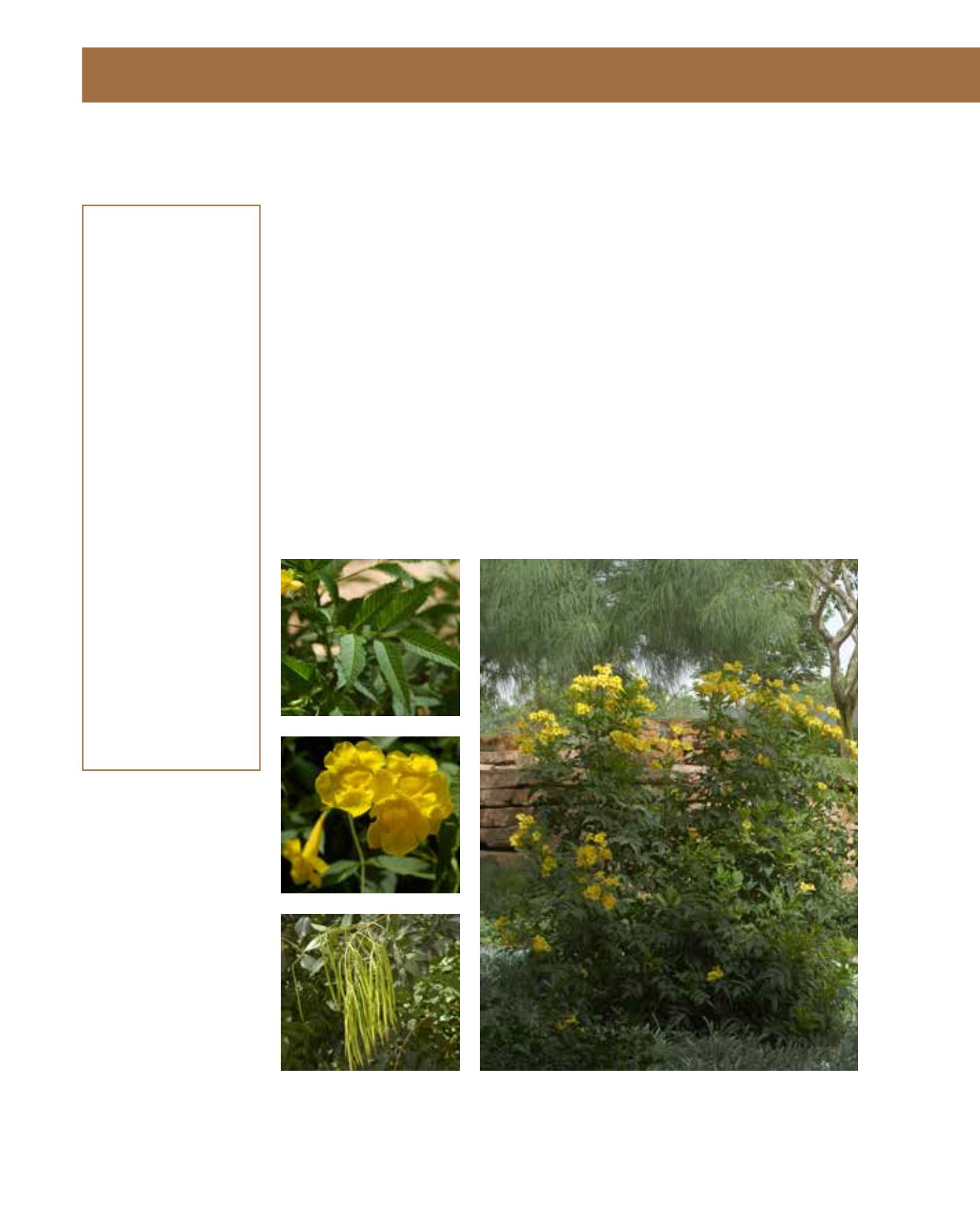

GENERAL
Origin
:
Mediterranean,
sub-tropical,
tropical
Vigour
:
fast growing
Humidity
:
semi-arid, semi-
humid, very
humid
Propagation :
sowing and
pricking out,
cuttings
Maintenance :
moderate
CONDITIONS
Urban climate :
resistant
Dessication :
vulnerable
Stagnant water :
vulnerable
Irrigation
:
medium
Salinity/ppm :
moderate (3000
ppm)
Hardiness
:
-3°C
SHAPE
Type
:
shrub
Height
:
6 m-9 m
Spread
:
5 m-8 m
Foliage
:
semi-evergreen
FLOWER
Colour
:
deep yellow
Size
:
3 cm - 8 cm
Period
:
June - October
FRUIT
Type of fruit :
capsule
Fruit size
:
15 cm - 25 cm
Toxicity
:
inedible
Usually, Trumpet Bushes or Yellow Bells grow as ascending large shrubs, but may be trimmed
to small trees. In their homeland, they may achieve a height of 9 metres and a width of 8 metres,
but usually stay half this size in cultivation. They originate from tropical America and are grown
worldwide for their bright-yellow blossom. The pinnate leaves usually show bright-green leaflets
all year round. Plants survive frost down to –10°C and often recover. The scented, funnel-shaped
flowers are produced in terminal racemes from autumn to early summer. Winters in Arriyadh
are mostly mild enough to allow continuous flowering, and the spring aspect is delightful. Brown
pods develop and split open when seeds are mature. Propagation is possible from semi-ripe cut-
tings in summer, but progeny may also be grown from seed. Trumpet Bushes revel in full sun
and heat, but also tolerate some shade. They resist heat and do with little water once established.
They grow moderately to fast, depending on the fertility of the soil, and the contents of moisture
and nutrients. This plant seems to be oblivious to pests and diseases, and is adaptable to almost
any condition. It can be trained or clipped to any shape desired, and looks well in containers.
Potential uses are multiple as a screen, group planting or large flowering hedge along roads. In
smaller gardens and in containers, the smaller form, Tecoma stans var. angustata, should be
considered. This form has lanceolate leaflets with deeply serrated margins. Pruning may be done
in early spring.
295
Tecoma stans,
Bignoniaceae
Yellow Bells,
Trumpet Bush
















